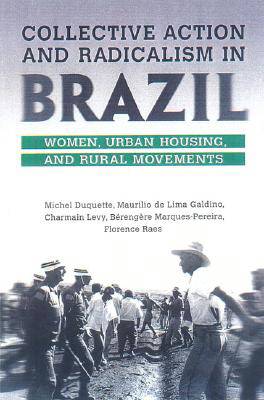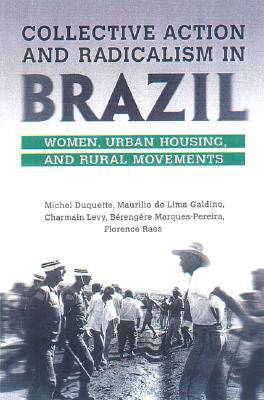
- Afhalen na 1 uur in een winkel met voorraad
- Gratis thuislevering in België vanaf € 30
- Ruim aanbod met 7 miljoen producten
- Afhalen na 1 uur in een winkel met voorraad
- Gratis thuislevering in België vanaf € 30
- Ruim aanbod met 7 miljoen producten
Collective Action and Radicalism in Brazil
Women, Urban Housing and Rural Movements
Michel DuQuette, Maurilio de Lima Galdino, Chairman LevyOmschrijving
In the past decade, Brazil has undergone a long series of political changes, culminating in the recent election of President Lula da Silva and his Workers' Party. These changes have come about through a landslide of social activism that is unprecedented in the country's history. The central topic of this book is an examination of three major recent movements within Brazil's civil society: the women's movement, the urban housing movement, and the landless peasant movement. All three are representative of a more general trend toward public protest and collectively indicate a shift in the internal dynamics of group identity within Brazil. The authors propose that the practices of power in Brazil are influenced by the expressions of a civil society now reorganized into a social movement and mobilized within a 'cycle of protest' that attains the level of a political alternative and that the present cycle of collective action is fuelled by the pitfalls of market reforms.
Specificaties
Betrokkenen
- Auteur(s):
- Uitgeverij:
Inhoud
- Aantal bladzijden:
- 240
- Taal:
- Engels
- Reeks:
Eigenschappen
- Productcode (EAN):
- 9780802039071
- Verschijningsdatum:
- 3/09/2005
- Uitvoering:
- Hardcover
- Formaat:
- Genaaid
- Afmetingen:
- 160 mm x 231 mm
- Gewicht:
- 494 g

Alleen bij Standaard Boekhandel
Beoordelingen
We publiceren alleen reviews die voldoen aan de voorwaarden voor reviews. Bekijk onze voorwaarden voor reviews.












